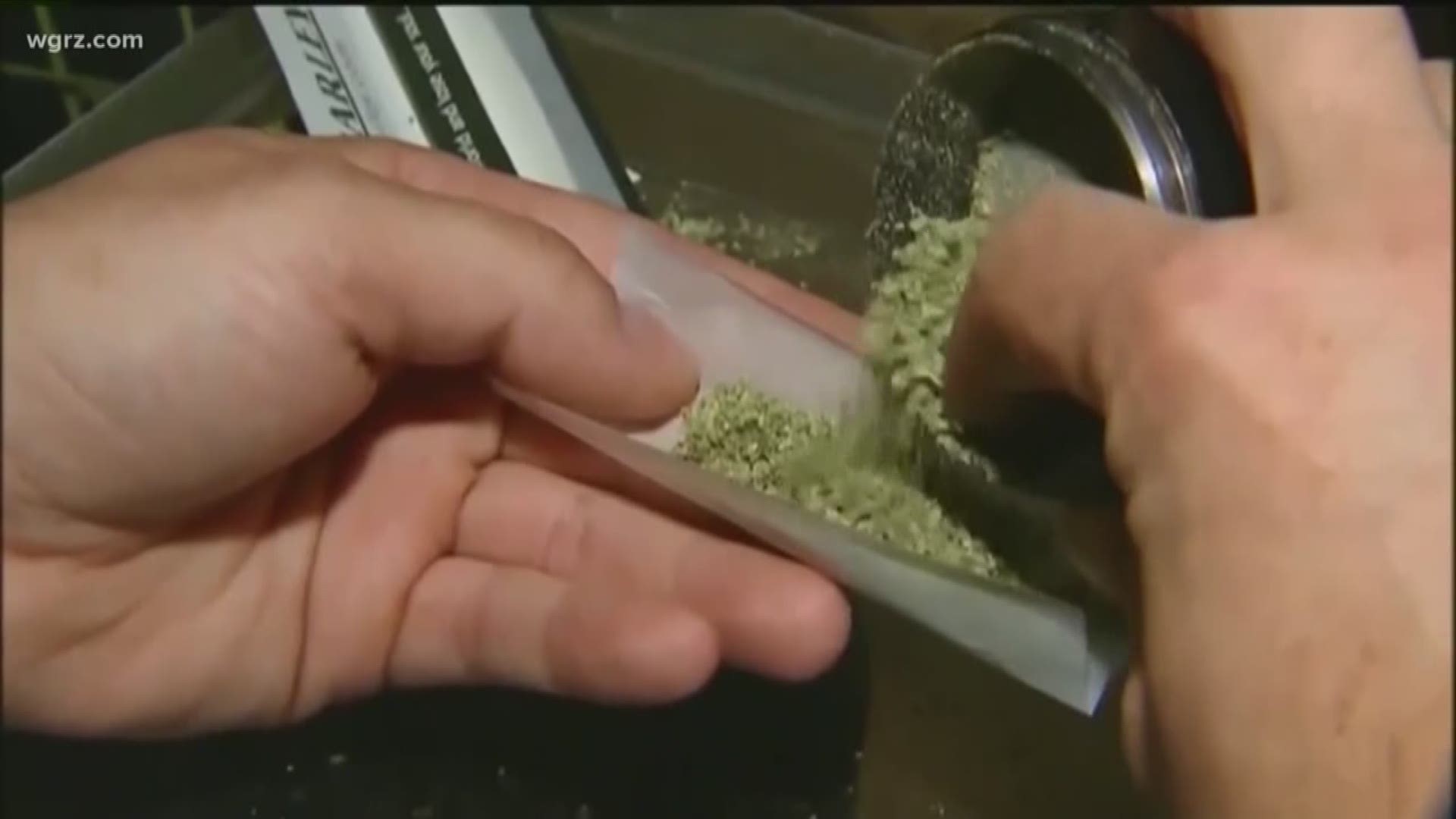BUFFALO, N.Y. — Buffalo Mayor Byron Brown's directive for police to no longer arrest people solely for possessing minor amounts of marijuana comes amid the likelihood that recreational pot will be legal in New York in the not so distant future.
A spokesperson for Deputy Assembly Speaker Crystal Peoples-Stokes of Buffalo says she believes the mayor did the right and sensible thing.
Peoples-Stokes is expected to play a key roll in determining the parameters under which New York might legalize recreational pot.
At the same time, though, debate rages over whether the state, in legalizing pot, is just condoning another "gateway" drug, leading to abuse of other illicit substances.
"We do see it as a gateway," said Jodie Altman of Kids Escaping Drugs. “All our kids on the campus come to us after drinking, smoking marijuana, or cigarettes. That’s what they started on, sometimes as young as 7 or 8 years old."
The Centers for Disease Control and Prevention reports regular marijuana users are three times more likely to become addicted to heroin.
However, noting the vast majority of those who use marijuana never progress to using other illicit drugs, the National Academy of Sciences' Institute of Medicine says there is no conclusive evidence that the effects of marijuana are causally linked to the subsequent abuse of other illicit drugs."
Meanwhile, researchers at the National Institute on Drug Abuse have concluded the direct answer to the gateway question is “maybe.”
While many studies show Marijuana use almost always precedes the use of harder drugs, it is not clear that using one somehow causes the use of the other.
And, as scientists often say, correlation isn’t the same as causation.
Even the state's top decision maker has waffled on the question.
For most of his time in office, Governor Cuomo referred to pot as a gateway drug, even when opposing its use for medical purposes.
When he relinquished on that, he still called it a gateway drug in opposing its recreational use.
It wasn’t until last year when he reversed course, pressured by his primary opponent Cynthia Nixon’s call to legalize, while noting the tax money being lost to surrounding states who were legalizing, and a finding by his state health department that the benefits for the state outweighed the potential drawbacks.

